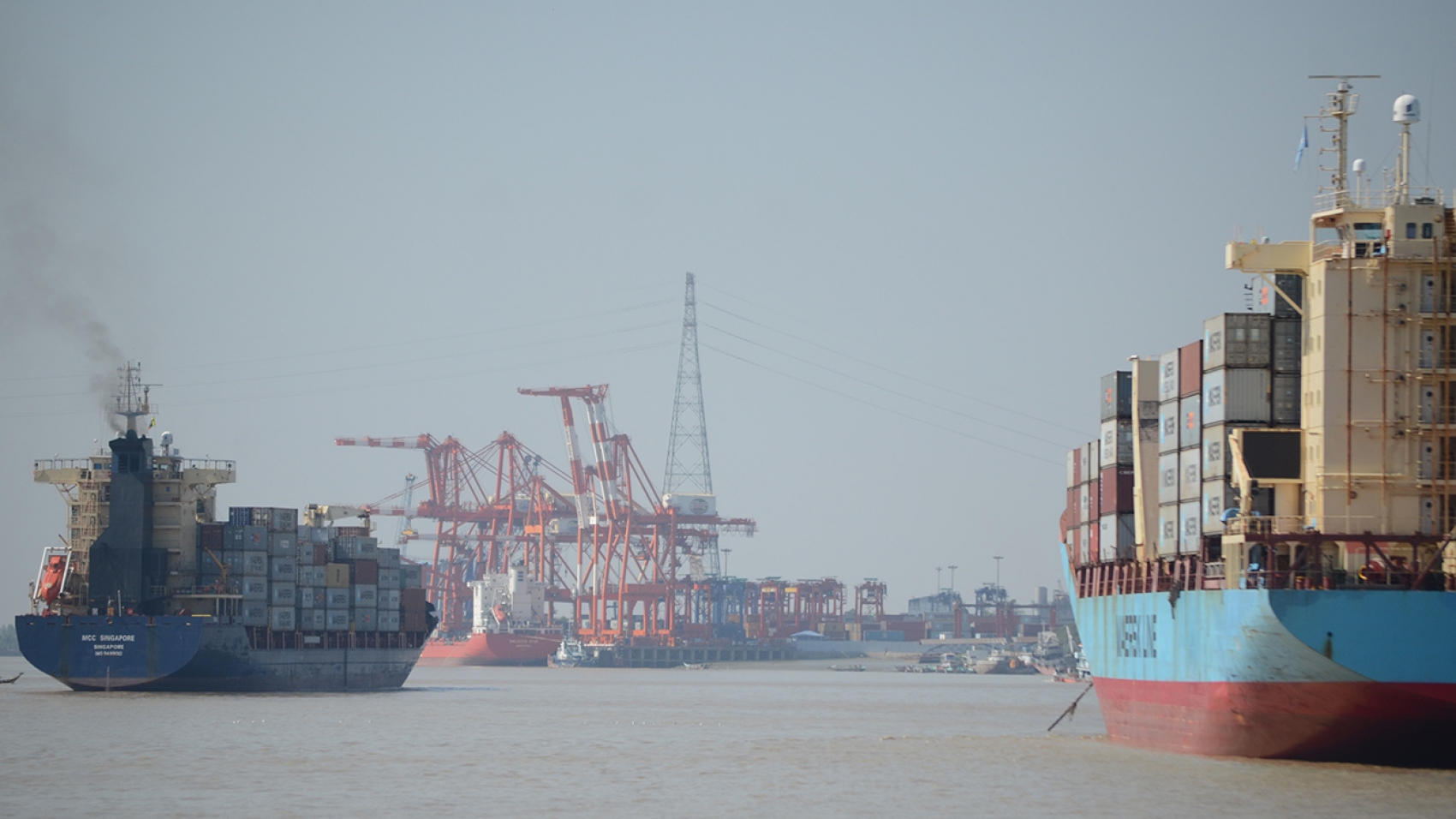The value of Myanmar’s imports between 1 and 9 October in the current financial year 2020-2021 stood at US$341.7 million, reflecting a decrease of $150 million from $491.89 million registered in the year-ago period, according to data released by the Ministry of Commerce. The value of imports in the consumer, capital, intermediate goods, and CMP businesses groups declined in the current FY. During the nine days of trading, the import value of capital goods, such as auto parts, vehicles, machines, steel, and aeroplane parts, was estimated at $118.29 million. The figure was $54 million lower than the same period in the previous FY. Meanwhile, Myanmar imported consumer products worth $80.66 million, including pharmaceuticals, cosmetics, and palm oil.
The imports of consumer products showed a decrease of $15.9 million compared with the same period in the previous FY. Typically, intermediate goods make up a large share of Myanmar’s imports, with petroleum products and plastic raw materials being the main import items. In the current FY, imports of raw materials plunged to $113 million from $160.8 million registered during the year-ago period. During the same period, raw materials worth $29.68 billion were also imported for the Cut-Make-Pack (CMP) garment businesses, showing a decrease of $31.5 million compared with last year. Myanmar imported over $19 billion worth goods in the last FY2019-2020, showing an increase of $935.8 million compared to the FY2018-2019. The top 10 import countries to Myanmar are China, Singapore, Thailand, Malaysia, Indonesia, India, Viet Nam, Japan, the Republic of Korea and the US, as per data of the Ministry of Commerce.
The government is trying to reduce the trade deficit by screening luxury import items and boosting exports. The country mainly imports essential goods, construction materials, capital goods, hygienic material and supporting products for export promotion and the import substitution.
The Ministry of Commerce has adhered to its policy reform depending on the requirements of the State and people. Moreover, a series of trade liberalization and openness for policy development have been introduced for enhancing a more viable trade environment. The private sector plays a prominent role in Myanmar’s market-oriented economic system. The ministry is highlighting free and fair trade, ensuring product safety and quality goods and services.
Source: The Global New Light of Myanmar

